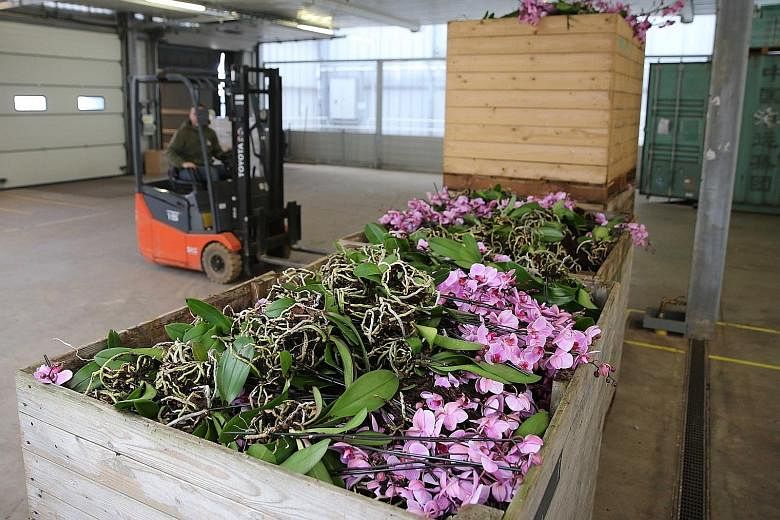HEMEL HEMPSTEAD (England) • Britain's gardening industry could be destroyed by the coronavirus shutdown, growers have warned, with the horticulture sector potentially facing a total stock write-off unlike that of any other industry.
Plant sales have fallen dramatically since the Mothers' Day weekend of March 21 and 22 in Britain. The national lockdown means there are unlikely to be any sales between now and the May bank holiday, traditionally the busiest trading period of the year.
The industry was facing "a perfect storm", said Mr James Barnes, chairman of the Horticultural Trades Association, which represents 1,400 garden retailers, growers and landscapers.
"At this particular time of year, you're looking at peak production from the nursery and grower sector just before or just at the start of the gardening season," he told Reuters on Thursday.
"The issue is really not just one of seasonality, but also of perishability because all of that plant stock ... unless it gets to the end user, unless it gets in the ground, it effectively will die," he added.
The Horticultural Trades Association estimates the value of lost plant sales in Britain will be £687 million (S$1.21 billion) by the end of June and has called for a rescue package from the government.
Growers face an uphill battle to stay in business.
"The impact has been devastating - we're having to either dump crop or go over it because it's just not selling," said Mr Richard Bryant, owner of plants wholesaler Bryants Nurseries in Hemel Hempstead, north of London.
He said normal daily turnover of around £60,000 is down to about £5,000.
"Our yearly turnover is two-thirds within this two-or threemonth period, so it's a huge impact. All the costs and inputs have already gone into the crop and then potentially if we can't sell it there's no income until the following May or June," he said.
Mr Bryant, whose family has traded from the site since the turn of the century, fears bankruptcy without more government help.
"The loans offered by the government won't help at all because although there'll be no interest payable for one year, we won't start making any more money until next May or June. So we're going to chase our tails, we just can't catch up," he said.
Mr Barnes said this year's disaster has implications for next year.
"If this thing goes on, what you lose is not just this year, but next year because these growers have to make a decision and have to have the financial capability to invest in next year's crop at the end of this summer," he said.
Meanwhile, despite picture-perfect spring weather in the Netherlands, the Dutch flower industry has continued to wilt amid the coronavirus crisis after suffering a sharp initial shock two weeks ago .
Growers are preserving what they can in storage or fields, but the reality is that the majority of this year's cut flower harvest will likely go to waste.
"The loss is huge," said Mr Michel van Schie of FloraHolland, the world's dominant flower clearing auction.
"At the moment we have only 30 per cent of our normal turnover, and... this is the busiest period of the year."
Daily sales in March often pass €20 million (S$31 million), continuing strong into the Easter holiday and Mother's Day in May.
In all, 35 per cent of global flower and plant exports, worth €6.2 billion a year, pass through the Netherlands, mostly from Dutch growers, but also from African and Latin American farms.
Mr van Schie said problems became acute on March 13 as flight cancellations and bans on public gatherings in many countries meant nearly a quarter of flowers at the auction that day went unsold and were literally thrown out.
"Next Monday, it was 50 per cent, and then we had to take measures and we said to our growers, 'Please diminish your supply', because otherwise it has to be destroyed, " he said.
Several Dutch tulip growers have started initiatives to get rid of extra stock, organising drive-by sales at cut-rate prices, or arranging to send flowers to hospitals to cheer healthcare workers and patients.
But those are local solutions and 85 per cent of Dutch flowers, notably tulips, are exported.
The Netherlands' Agricultural and Horticultural Organisation estimates the damage to the entire Dutch agriculture industry at €5 billion.
It is advising farmers, including flower growers, to hold onto their receipts and make visual documentation when crops go to waste.
"When there are no birthday parties celebrated, when there are no weddings, when there are no other festivities, there is no need for flowers in huge amounts," Mr van Schie said.
REUTERS

